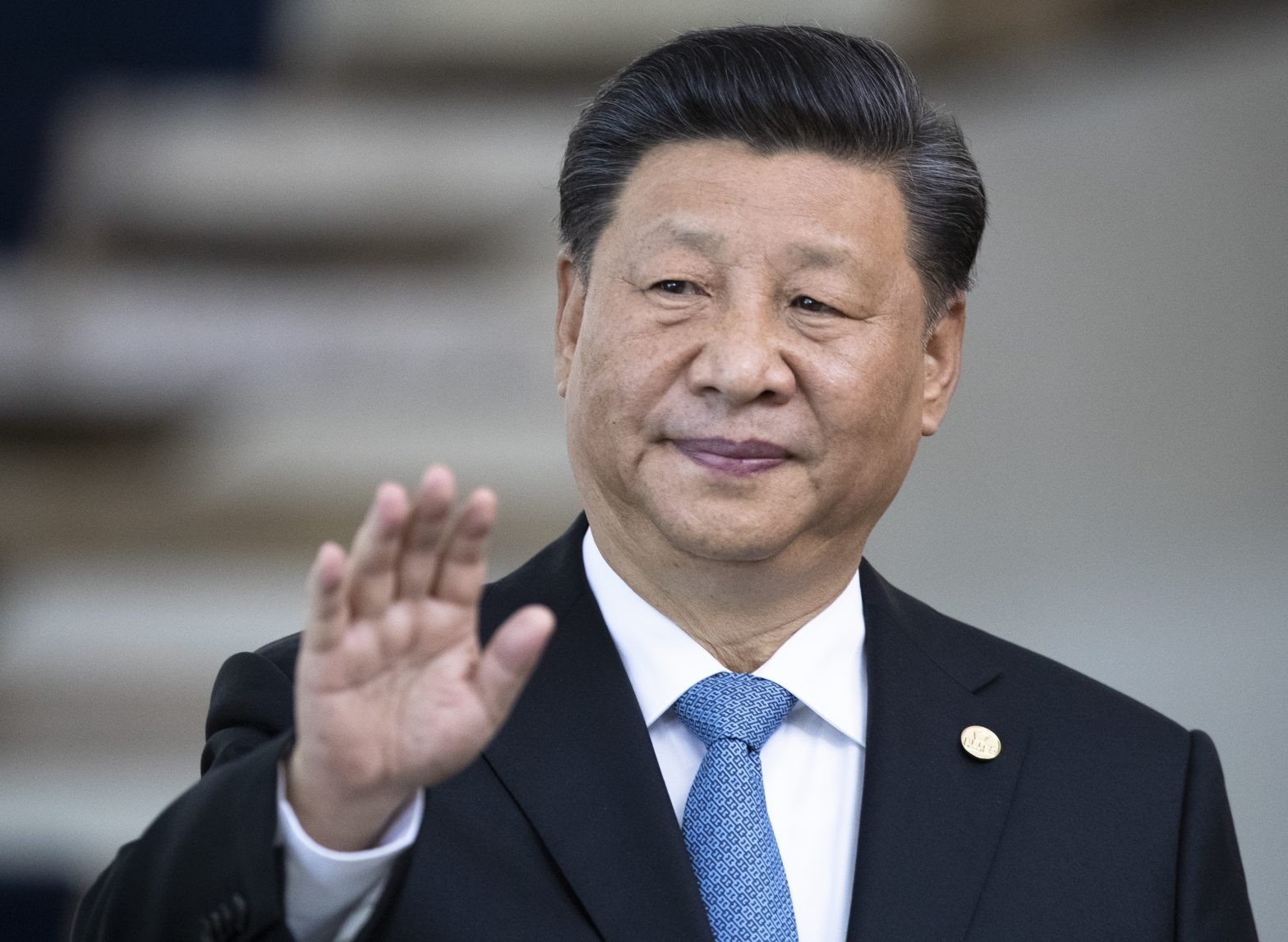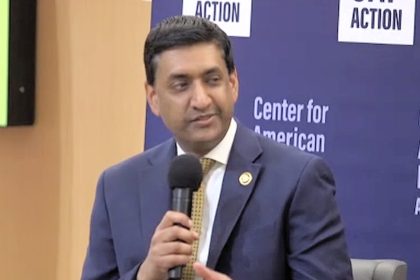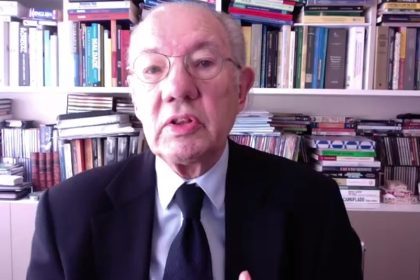China Seeking Financial Self-Reliance, Developing Yuan as Monetary Pillar Equal to Dollar

WASHINGTON — Beijing, in an effort to assert its own influence and reconfiguration of the global financial order, is working on long-term plans to decouple from the dollar, according to a new book introduced at the Wilson Center earlier this week.
In their new release, “China’s Quest for Financial Self-Reliance,” co-authors Diana Choyleva and Dinny McMahon study the path to greater internationalization for Chinese currency — interchangeably called yuan and renminbi — including efforts for the yuan to be a global third monetary pillar alongside the dollar and the euro.
“The questions we tried to answer were, first of all, why China wants to do this, and second, how it plans to do this. … As well as, of course, what should American policymakers do about it?” Choyleva shared with an audience at the Washington, D.C.-based research institute.
At its root, what they found was that “ultimately, this is all about Beijing’s efforts to realize its great power ambition,” said Choyleva. “They want to be able to purchase what they want from the rest of the world using yuan as well as their own banking system.”
In doing this, China is not necessarily trying to supplant the dollar, but rather is challenging the dollar’s supremacy in global capital markets while developing the use of the yuan within its sphere of influence to make the yuan a regional anchor.
Dubbing this “The Great Decoupling,” Choyleva said financial dominance is the latest in the all-encompassing confrontation between the existing superpower of America and the aspiring one of China. Choyleva and McMahon believe financial dominance “is the fundamental driving force in the world from which everything else will fall out.”
Their research is based on government reports, interviews with officials and other policymaking documents.
“The reasons why China wants to decouple are very simple to understand,” Choyleva said, offering that China views its dependence on the dollar as a strategic vulnerability that complicates significantly its foreign and domestic affairs, including the challenge of unifying with Taiwan.
Not only does China fear the dollar is being used as a weapon through sanctions, but it “views the dollar as a deficiency in terms of how it interacts and impacts its own economy” and no longer views “the global role of the dollar as a global good,” according to Choyleva.
But the main reason China is interested in RMB internationalization is likely its efforts to achieve its own political sphere of influence.
The Belt and Road Initiative is the main tool China has used to spread geopolitical influence, but despite its efforts to tie the yuan to these projects, the proliferation of RMB in this way hasn’t happened very quickly and isn’t entirely in China’s hands.
“The focus is now on trying to put in place reasons for people to actually use RMB,” Choyleva said. “First China gave the world the means to use the yuan … a second stage involves exploring avenues that could be used for cross-border payments. The third stage is … providing the rest of the world with reasons for why they should use the currency.”
“[It has] been far cheaper and more convenient to use the dollar than any other currency,” admitted co-author Danny McMahon.
This is largely because the market for dollar futures and forwards is much bigger than that of other monies.
“For China to replicate conditions that the dollar enjoys, it needs vibrant currency markets, and spot and derivatives that are actively traded and are supported by deep pools of RMB,” McMahon explained.
Not only does China need RMB to flow out of the country, but it needs a reason for overseas banks to hold RMB, and that can only happen if foreigners need yuan to buy goods and services.
“The message that China is trying to get out … is that China is a far more responsible economic stakeholder than the United States and that is a reason for why the rest of the world should consider using RMB,” McMahon said, adding, however, that “it’s unreasonable to think that RMB might fairly be recognized as an international currency in really anything less than a decade.”
He proposed that to stimulate an outward flow of RMB and boost investment in Chinese financial markets, there would need to be an overhaul in the way capital markets work in China — which means making them deeper, broader, more liquid and overall more attractive to foreign investment.
China’s other Central Bank efforts toward RMB internationalization focus on commodity futures, regional comprehensive economic partnerships and e-commerce.
“The pricing of commodities in dollars is something that very much vexes Chinese authorities,” McMahon said.
“Beijing wants to make China the place where prices for global commodities are determined,” he said, reminding that the price of most commodities is worked out on futures exchanges, which are primarily in the U.S. and U.K.
To do this, China is “introducing commodities that don’t have futures trading elsewhere in the world,” like metal and resources important to emerging industries.
“Beijing [also] wants China to become an anchor of demand for Asian supply chains,” McMahon added, “and China wants e-commerce imports to be settled in RMB.”
As for what the United States can and should do about all of this, the co-authors have a range of opinions.
“Maybe the first advice would be to really reframe the discussion [about the true cause of the global financial crisis of 2008],” Choyleva said. “It’s about getting the confidence [to say] that it actually wasn’t [America’s] fault — and in projecting that story to American allies.”
Furthermore, the authors suggest not getting worked up about small gains that the yuan makes, but instead, she said, “doubl[ing] down on the advantages and values of the free liberal and democratic economic system.”
Kate can be reached at [email protected]
























